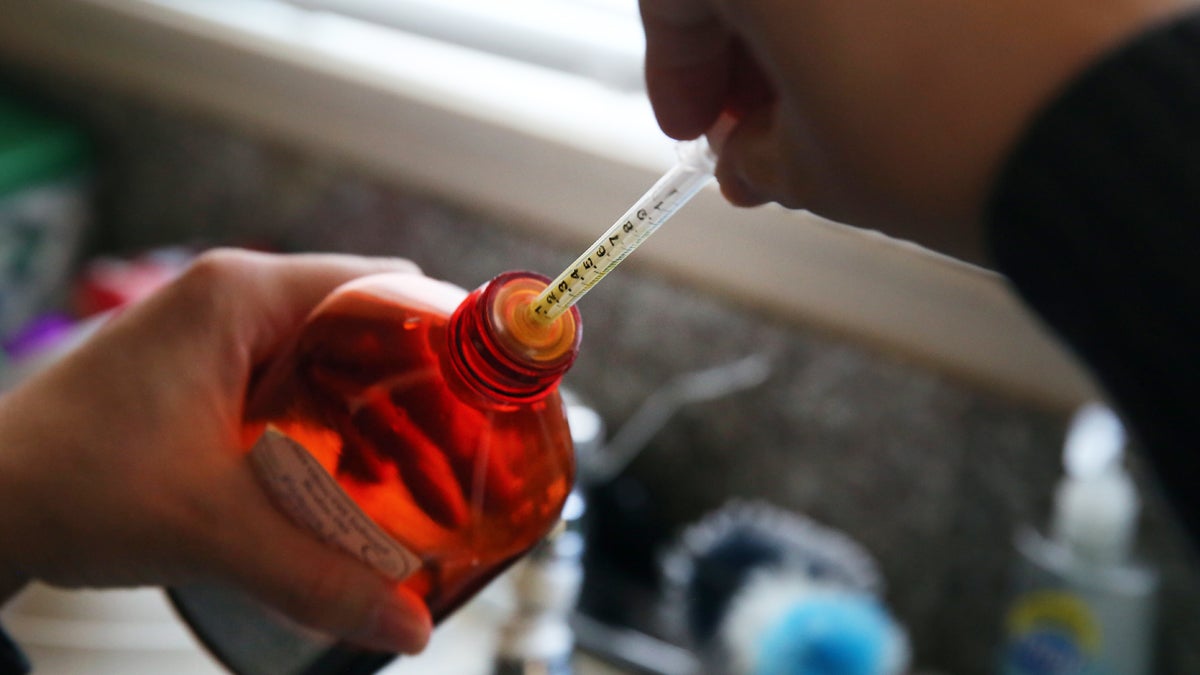In pending Pa. bill, autism qualifies for marijuana prescription
Listen
FILE - In this file photo, a woman loads an oral syringe with cannabis-infused oil used to treat her 4-year-old daughter who suffers from severe epilepsy, at their home in Colorado Springs, Colo. (Brennan Linsley/AP Photo, file)
Pennsylvania is poised to become the first state to explicitly include autism in its list of qualifying conditions under a medical marijuana law.
The plan, which cleared the House of Representatives last week by a 149-43 margin, would also include conditions more commonly found in state medical cannabis statutes, including cancer, Crohn’s disease and glaucoma.
“Some people have called me and asked me and said, ‘Why are you recommending this for autism?’ We’re not recommending anything for anything. That’s up to doctors to decide,” said state Rep. Russ Diamond, R-Lebanon, who sponsored the amendment to include autism.
“I thought it was important for doctors to include that option … if they see fit.”
Diamond said he’s heard from a number of constituents during the past few months about the benefits of using marijuana to treat both children and adults on the autism spectrum.
While there may be anecdotal evidence, some opponents of the move point to a lack of scientific proof for the use of marijuana to ease symptoms such as anxiety. Research studies remain limited by federal prohibitions against the drug.
That is in part why Becky Dansky with the Marijuana Policy Project, a national advocacy group, believes the Pennsylvania law could help shine more light on the drug’s potential benefits.
“It will open up to collecting more data on the effects of it, and I think that it will create moreopportunities for us to learn more about how medical marijuana can help autistic patients,” she said.
If it were up to Dansky, however, there wouldn’t be any qualifying conditions in the legislation. She supports granting physicians the ability to recommend marijuana to whichever patients they think it may help.
“It’s bizarre to have lawmakers deciding who can have access to a medicine and who can’t.”
Three states — Maryland, Massachusetts and California — along with the District of Columbia don’t lay out conditions in their medical marijuana statutes, but Dansky said Republican majorities in Pennsylvania’s House and Senate made passing a less restrictive version a greater challenge. Last year, Delaware added autism to its official list of qualifying conditions, but only in patients who display self-injurious or aggressive behavioral symptoms.
The Pennsylvania bill still needs the approval of the Senate, which greenlighted an earlier version of the medical marijuana measure. Gov. Tom Wolf has stated he would sign the bill into law.
“I know a lot of people have fears about marijuana, and they think of hippies and stoners and that sort of thing,” said Diamond. “Well, the truth here is that sick people don’t want to get high. They want to get better.”
WHYY is your source for fact-based, in-depth journalism and information. As a nonprofit organization, we rely on financial support from readers like you. Please give today.

